Education: Women’s and Gender Studies
Literature Scholars in the United States
Jewish women have been among the key figures in literary scholarship in the United States in the postwar period. Those entering the profession in the 1950s faced more difficulties as women than they did as Jews. Today, Jewish women are found in all corners of the profession, from feminist and queer theory to administration, critical race studies, and beyond.
Midrash and Aggadah: Introduction and Sources
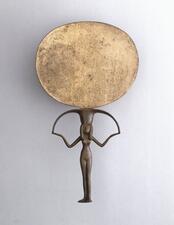
Ministering Women and Their Mirrors
Women who ministered at the entrance of the Tabernacle gathered around to donate their copper mirrors (Exodus 38:8), which were then smelted down to make the basin where the priests would wash before entering the sanctuary. The women may have served as guards, warding off evil with their mirrors. Midrash, however, conjectures that the women used these mirrors to seduce their husbands in Egypt, raising up the hosts of Israelites.
Lazarus, Nahida Ruth
Nahida Ruth Lazarus was a German-Jewish cultural and literary critic, author, journalist, and essayist who was born in Berlin to a German-Christian family and converted to Judaism in 1895. She is best known for her published source book, The Jewish Woman (1891), a product of her fundamental interest in both feminism and Judaism that remains an important text for women’s and gender studies.
Post-Biblical and Rabbinic Women
IIn antiquity, the treatment of women drew from patriarchal biblical traditions. Despite a few notable exceptions, women had minimal legal rights but were active participants in alternative Jewish sects and could hold office. As rabbinic material was codified, control over women increased, although the literature was not exclusively restrictive towards women.
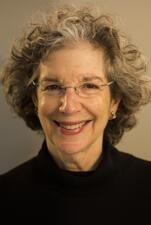
Riv-Ellen Prell
Anthropologist Riv-Ellen Prell initiated ethnographic study of ordinary American Jews that paid attention to religion, gender, ritual, and cultural performance. Her work addresses the primacy of gender in twentieth-century Jewish life and looks at economic and power relations often expressed through negative stereotypes of Jewish women.
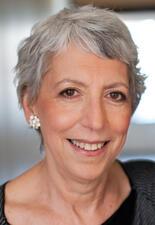
Gail Twersky Reimer
Gail Twersky Reimer is a teacher, writer, editor, passionate advocate for the humanities, and visionary pioneer of Jewish feminism. Reimer founded the Jewish Women’s Archive in 1995 to ensure that Jewish women’s stories would become integral parts of the historical record. Under her leadership, JWA pioneered the use of virtual technology in collecting, chronicling, and transmitting knowledge of Jewish women’s lives.

Rezadeiras among Bene Anusim in Portugal
The rezadeiras, prayer-women, began to play an important role in crypto-Jewish practice after the late fifteenth-century Expulsions from Spain and then Portugal forced anyone who wanted to live as a Jew to do so in secret.
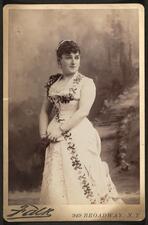
Julie Rosewald
Julie Eichberg Rosewald was America’s first woman cantor. Known as the “Cantor Soprano” at Temple Emanu-El in San Francisco, she served between 1884 and 1893. Rosewald enjoyed a brilliantly successful career in opera as well as being a composer, author, teacher, and professor of music.
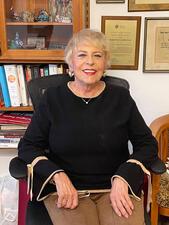
Marilyn Safir
Marilyn Safir is an Israeli-American psychologist who played a critical role as a feminist activist in sparking the Israeli women’s movement and in establishing the academic field of women’s studies in Israel. Her academic career has focused on sex, sexuality, and gender.
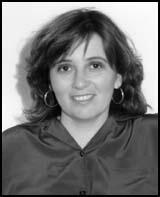
Debra L. Schultz
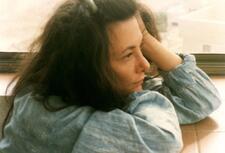
Vicki Shiran
Vicki Shiran was an Egyptian-born Israeli social activist dedicated to feminism, anti-occupation activism, and fighting discrimination against Mizrahim in Israel, all of which she viewed as interconnected. In 1999 she helped found Ahoti, For Women in Israel, which promoted the labor rights of lower-class women in Israel, and in 1981 she led a fierce fight against the Israel Broadcasting Authority for its exclusion of Mizrahim in its telling of the history of the Israeli state.
Elaine Showalter
Elaine Showalter is a pioneer of feminist criticism. She is best known for inventing the term “gynocriticism,” a new theoretical framework that argued that that women had been using the language of men for far too long and that they needed to develop a new critical approach to better understand the female subcultures that operate within male-dominated power structures.
Barbara Miller Solomon
Barbara Miller Solomon was not only an educator but a pioneer in the field of women's history. Named the first female dean of Harvard College in 1970, she laid the groundwork for the formal establishment women’s studies there. Her scholarship on the history of immigration and women's history remains influential today.
Alice Hyneman Sotheran
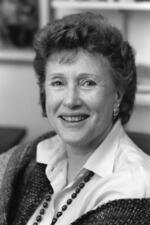
Amy Swerdlow
Amy Swerdlow (1923-2012), child of a Communist household in the Bronx, shared her parents’ dedication to making a better world but developed her own political agenda. She became a leader of the global women’s peace movement, a pioneer in the field of women’s history, and a professor of history and women’s studies at Sarah Lawrence College in Yonkers, New York.
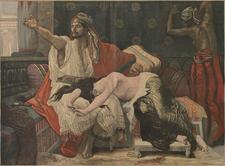
Tamar 2
The story of the rape of Tamar, the daughter of King David, by Amnon, her half-brother (2 Samuel 13) is told in the wake of the king’s sins of adultery and murder. Tamar’s is the only woman’s voice in the Bible to be heard in resistance to rape, though she is ultimately silenced by her full brother, Absalom. He murders Amnon in vengeance and stages an insurrection against the king, his father, while she lives the rest of her life forlorn in Absalom’s house.
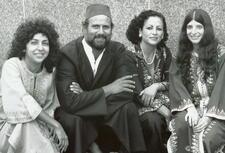
Women and Sephardic Music
Ladino or Judeo-Spanish Sephardic songs are primarily a women’s repertoire. The two main traditions are that of northern Morocco and the Eastern Mediterranean, primarily today’s Turkey, Greece, the Balkans.
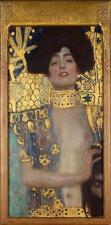
Women Warriors
In the Hebrew Bible and ancient Jewish literature, most warriors are men. However, a few women go to war or kill: Deborah, Jael, the unnamed woman of Thebez, and Judith.
Women's Studies in Israel
In the 1980s and 1990s, Women and Gender Studies programs were established at the five Israeli Universities, emerging from the “New Women’s Liberation” movement of the 1970s. The programs faced many challenges, especially a lack of university support, but today are popular with students and faculty. Women’s Studies programs also developed at Israeli colleges, and the Israeli Association for Feminist and gender Studies is a national organization of feminist scholars.
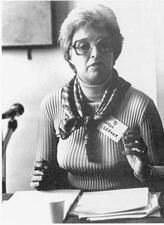
Women's Studies in the United States
Jewish women were instrumental in creating women’s studies as an academic discipline and contributed significantly to its growth and evolution. They have been critical not only as political activists, administrators, and editors of the key women’s studies journals, but also as prominent thinkers in the field’s intellectual debates.
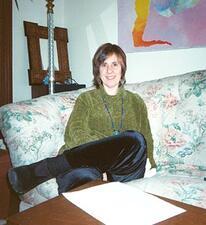
Janet Yassen
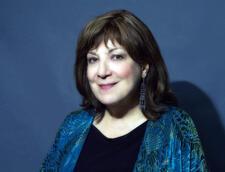
Avivah Gottlieb Zornberg
Avivah Gottlieb Zornberg is a highly regarded Torah scholar and author. Her complex interpretive lens is both contemporary, in drawing from literary sources, philosophy, and psychoanalytic theory, and very traditional, in reading the Bible through the lens of classic commentaries and rabbinic midrash.


